Peugeot 308 vs Tesla Model Y - Differences and prices compared
Compare performance (195 HP vs 627 HP), boot space and price (29200 £ vs 34300 £ ) at a glance. Find out which car is the better choice for you – Peugeot 308 or Tesla Model Y?
Costs and Efficiency:
When it comes to price and running costs, the biggest differences usually appear. This is often where you see which car fits your budget better in the long run.
Peugeot 308 has a somewhat advantage in terms of price – it starts at 29200 £ , while the Tesla Model Y costs 34300 £ . That’s a price difference of around 5040 £.
In terms of energy consumption, the advantage goes to the Tesla Model Y: with 13.10 kWh per 100 km, it’s to a small extent more efficient than the Peugeot 308 with 15.60 kWh. That’s a difference of about 2.50 kWh.
As for electric range, the Tesla Model Y performs evident better – achieving up to 622 km, about 172 km more than the Peugeot 308.
Engine and Performance:
Under the bonnet, it becomes clear which model is tuned for sportiness and which one takes the lead when you hit the accelerator.
When it comes to engine power, the Tesla Model Y has a clearly edge – offering 627 HP compared to 195 HP. That’s roughly 432 HP more horsepower.
In acceleration from 0 to 100 km/h, the Tesla Model Y is significantly quicker – completing the sprint in 3.50 s, while the Peugeot 308 takes 7.60 s. That’s about 4.10 s faster.
In terms of top speed, the Tesla Model Y performs slight better – reaching 250 km/h, while the Peugeot 308 tops out at 225 km/h. The difference is around 25 km/h.
There’s also a difference in torque: Tesla Model Y pulls noticeable stronger with 493 Nm compared to 300 Nm. That’s about 193 Nm difference.
Space and Everyday Use:
Beyond pure performance, interior space and usability matter most in daily life. This is where you see which car is more practical and versatile.
Both vehicles offer seating for 5 people.
In curb weight, Peugeot 308 is clearly perceptible lighter – 1453 kg compared to 1976 kg. The difference is around 523 kg.
In terms of boot space, the Tesla Model Y offers convincingly more room – 822 L compared to 412 L. That’s a difference of about 410 L.
In maximum load capacity, the Tesla Model Y performs distinct better – up to 2138 L, which is about 815 L more than the Peugeot 308.
When it comes to payload, Peugeot 308 minimal takes the win – 503 kg compared to 472 kg. That’s a difference of about 31 kg.
Who comes out on top?
Overall, the Tesla Model Y shows itself to be leaves the rival little chance and secures the title of DriveDuel Champion.
It convinces with the more balanced overall package and proves to be the more versatile choice for everyday use.
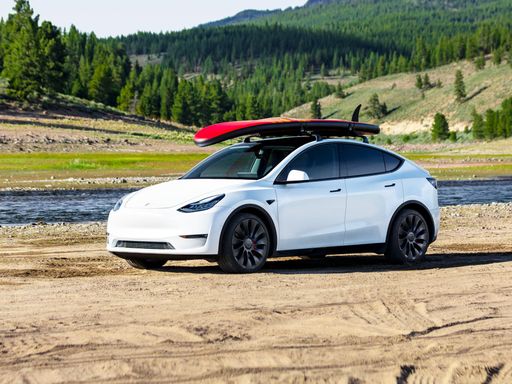
Tesla Model Y
Costs and Consumption
View detailed analysis
Engine and Performance
View detailed analysis
Dimensions and Body
View detailed analysis
Peugeot 308
The Peugeot 308 brings a sleek, feline profile and an unexpectedly upscale cabin, with clever packaging and materials that feel a touch more premium than you might expect. It’s composed on the road, easy to live with for daily life, and a smart choice if you want a stylish hatch that still behaves when the road gets interesting.
details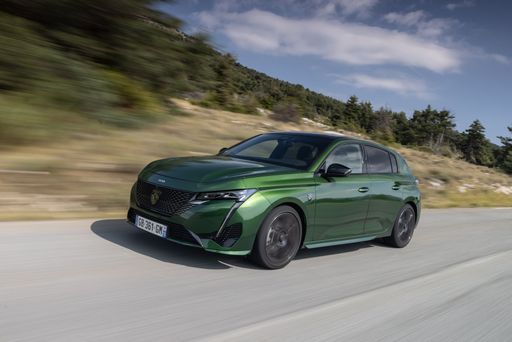
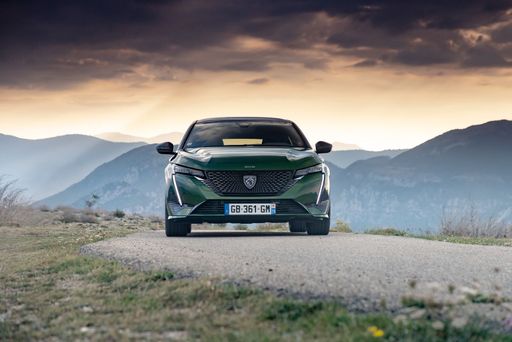
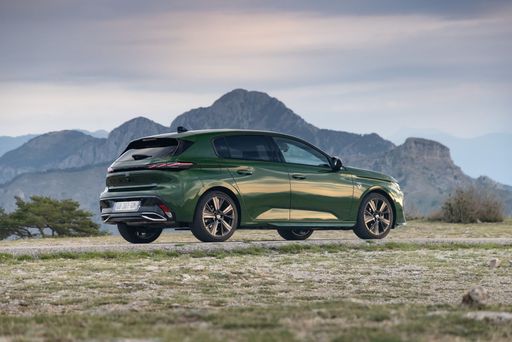
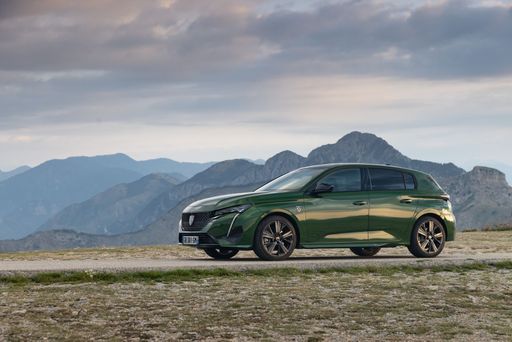
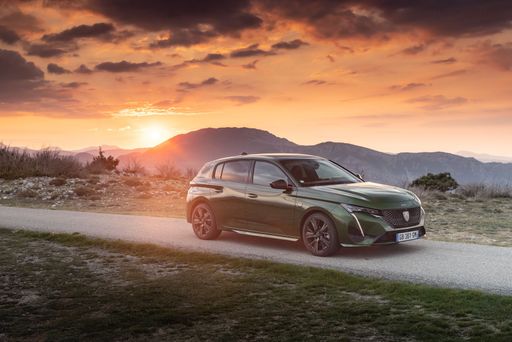
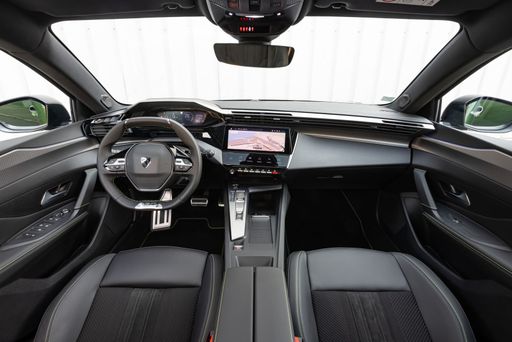
Tesla Model Y
The Tesla Model Y blends SUV practicality with sports-car poke, wrapping a roomy, minimalist cabin and handy hatch into a slick, aerodynamic package that feels more Silicon Valley gadget than garage ornament. It’s an ideal pick for buyers who want effortless electric driving, regular software improvements and access to Tesla’s convenient charging network, though style-conscious shoppers should know it’s more about tech and efficiency than classic luxury.
details
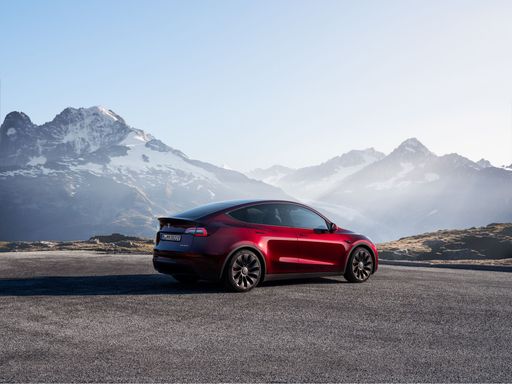
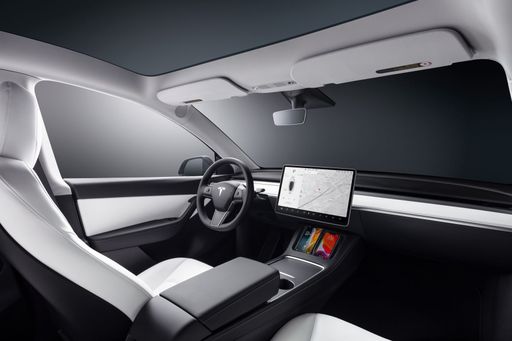
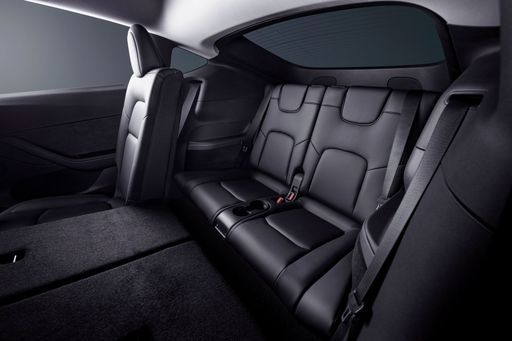
Costs and Consumption |
|
|---|---|
|
Price
29200 - 42600 £
|
Price
34300 - 53100 £
|
|
Consumption L/100km
2.3 - 5 L
|
Consumption L/100km
-
|
|
Consumption kWh/100km
15.60 kWh
|
Consumption kWh/100km
13.1 - 16.2 kWh
|
|
Electric Range
78 - 450 km
|
Electric Range
534 - 622 km
|
|
Battery Capacity
0.40 kWh
|
Battery Capacity
64.5 - 85 kWh
|
|
co2
0 - 129 g/km
|
co2
0 g/km
|
|
Fuel tank capacity
42 - 52 L
|
Fuel tank capacity
-
|
Dimensions and Body |
|
|---|---|
|
Body Type
Hatchback
|
Body Type
SUV
|
|
Seats
5
|
Seats
5
|
|
Doors
5
|
Doors
5
|
|
Curb weight
1453 - 1749 kg
|
Curb weight
1976 - 2108 kg
|
|
Trunk capacity
314 - 412 L
|
Trunk capacity
822 L
|
|
Length
4367 mm
|
Length
4790 - 4797 mm
|
|
Width
1852 mm
|
Width
1921 mm
|
|
Height
1438 mm
|
Height
1611 - 1624 mm
|
|
Max trunk capacity
1258 - 1323 L
|
Max trunk capacity
2022 - 2138 L
|
|
Payload
430 - 503 kg
|
Payload
440 - 472 kg
|
Engine and Performance |
|
|---|---|
|
Engine Type
Petrol MHEV, Diesel, Plugin Hybrid, Electric
|
Engine Type
Electric
|
|
Transmission
Automatic
|
Transmission
Automatic
|
|
Transmission Detail
Dual-Clutch Automatic, Automatic Gearbox, Reduction Gearbox
|
Transmission Detail
Reduction Gearbox
|
|
Drive Type
Front-Wheel Drive
|
Drive Type
All-Wheel Drive, Rear-Wheel Drive
|
|
Power HP
131 - 195 HP
|
Power HP
299 - 627 HP
|
|
Acceleration 0-100km/h
7.6 - 10.6 s
|
Acceleration 0-100km/h
3.5 - 7.2 s
|
|
Max Speed
170 - 225 km/h
|
Max Speed
201 - 250 km/h
|
|
Torque
230 - 300 Nm
|
Torque
420 - 493 Nm
|
|
Number of Cylinders
3 - 4
|
Number of Cylinders
-
|
|
Power kW
96 - 144 kW
|
Power kW
220 - 461 kW
|
|
Engine capacity
1199 - 1598 cm3
|
Engine capacity
-
|
General |
|
|---|---|
|
Model Year
2025
|
Model Year
2025
|
|
CO2 Efficiency Class
C, D, B, A
|
CO2 Efficiency Class
A
|
|
Brand
Peugeot
|
Brand
Tesla
|
Is the Peugeot 308 offered with different drivetrains?
Available configurations include Front-Wheel Drive.




